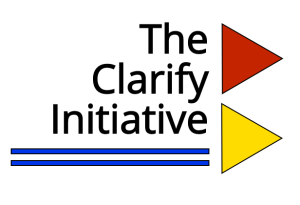7CA. Name-calling Corpus Activity
Anuj Gupta and Jonathon Reinhardt
Epithets in military propaganda
In times of war, soldiers often use epithets for their enemies. In the two world wars, British and American soldiers called their German enemies ‘Krauts’, ‘Huns’, or ‘Heinies’. In the American Revolutionary war, ‘Yankee Doodle Dandy’ was a derogatory epithet that British soldiers used to ridicule Colonial troops, while ‘Yankee’ was used by Confederate soldiers in the US Civil War to refer negatively to Union soldiers. While the name may still be hated among Boston Red Sox fans, its derogatory meaning has long since been forgotten.
In their paper “‘Because it’s easier to kill that way’: Dehumanizing epithets, militarized subjectivity, and American necropolitics”, Mcintosh (2021) argues that the US military purposefully promotes the use of dehumanizing terms to define its enemies during the training of its soldiers in order to make it easier for the soldiers to target and eliminate them. They argue that “derogatory epithets for the enemy” encourage “affectively charged, deadly stances” or attitudes in the American soldiers (583). These epithets include “racial, religious, and other slurs” which tap into “a culturally widespread pattern of using derogatory epithets for social others” (584). Among the many terms used, some have “included ‘slants’, ‘gooks’, ‘dinks’, and ‘zipper-heads’ during the Vietnam War, for instance, or ‘towel-heads’, ‘hajis’, even ‘sand n***ers’ during the ongoing Global War on Terror, or GWOT.” (584).
Such “enemy epithets are semi-propositional, or half-understood, concepts (Sperber 1982), suffused more with affective stance than with conceptual clarity” (591). They reduce the identity of the enemy to only a negative stereotype blurring all complexity and nuance. Doing so helps to dehumanize the enemy by creating a psychological distance between the American soldiers and soldiers from opposing armies which makes it easier for them to kill them. One of the veterans who Mcintosh (2021) interviewed said that using such epithets makes it seem as if the enemies “weren’t real [to us recruits]…they were just something taboo” (591).
Additionally such epithets also blur the difference between soldiers and civilian population as the dehumanization stretches to everyone in a particular community. Another Iraq war veteran revealed that “The infantry taught us to use language like ‘haji’ and ‘raghead’ and ‘target’ and ‘towelhead’ to dehumanize not just enemy combatants, but every Iraqi or Arab person we encountered’” (594).
Module author: Anuj Gupta & Jon Reinhardt
Last updated: 28 November 2022
This module is part of Critical Language Awareness: Language Power Techniques and English Grammar, an open educational resource offered by the Clarify Initiative, a privately funded project with the goal of raising critical language awareness and media literacy among students of language and throughout society.



